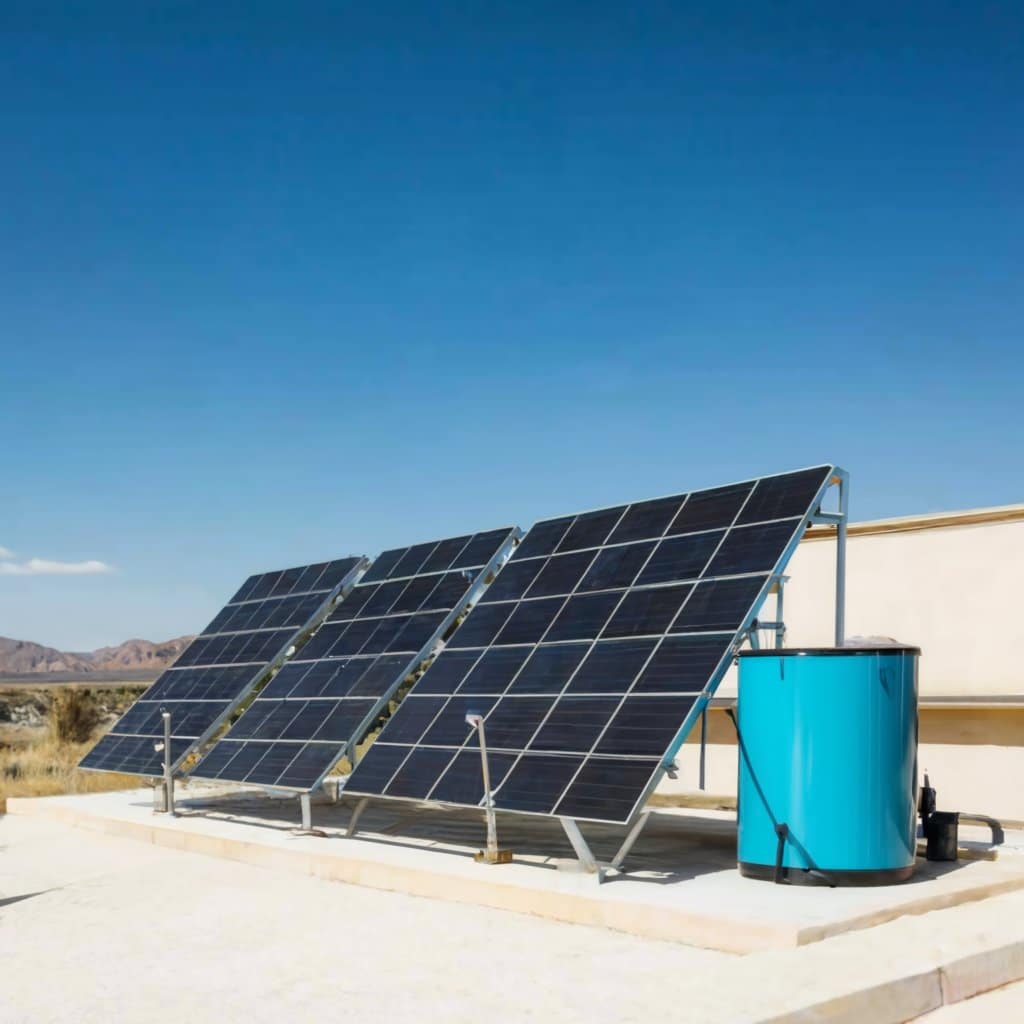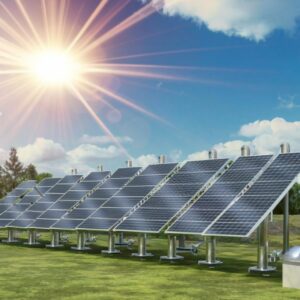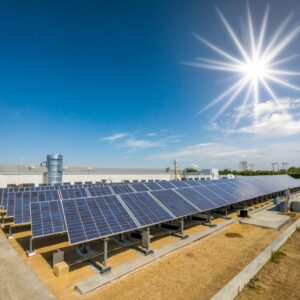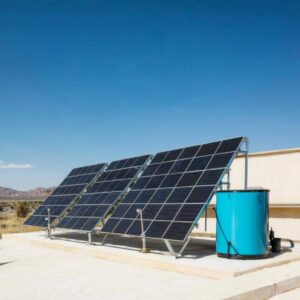
solar power for water heating
How Solar Water Heating Systems Work
Solar water heating systems are designed to capture solar energy, convert it into heat, and transfer it to water.
Components of a Solar Water Heating System
- Solar Collectors: These panels absorb sunlight, converting it to thermal energy.
- Circulation System: A pump or natural circulation process moves the heated water or fluid from the collector to the storage tank.
- Storage Tank: This tank stores the heated water for use throughout the day or night.
Types of Solar Water Heating Systems
Solar water heating systems come in various types, each suited to different climates and household needs.
Active vs. Passive Solar Water Heating Systems
- Active Systems: These use pumps to circulate the water or heat-transfer fluid through the system. They’re efficient but require electricity to operate the pumps.
- Passive Systems: Rely on gravity and natural circulation. These are generally less efficient but more durable and cost-effective.
Direct vs. Indirect Circulation Systems
- Direct Systems: Heat water directly in the solar collectors, ideal for warm climates without freezing temperatures.
- Indirect Systems: Use a heat-transfer fluid that circulates through the collectors, heating the water indirectly, making it suitable for colder regions.
Benefits of Using Solar Power for Water Heating
Solar water heating offers numerous advantages beyond simple cost savings. Let’s explore the main benefits.
Cost Savings and Reduced Energy Bills
Using solar power can significantly cut energy costs. Although initial installation costs can be high, solar water heating systems offer long-term savings by reducing monthly utility bills.
Environmentally Friendly and Sustainable
Solar water heating minimizes carbon emissions and decreases our dependence on fossil fuels, making it a green choice.
Increased Property Value
Homes with solar water heating systems are often more attractive to buyers, as they offer an efficient and sustainable energy solution.
Energy Security and Independence
With solar heating, you become less reliant on the electricity grid, which is beneficial in areas prone to power outages or rising energy costs.
Installing a Solar Water Heating System
Initial Assessment and Feasibility
Before installation, assess your home’s suitability for solar water heating, including roof orientation, shading, and local climate.
Choosing the Right System
Decide between active or passive, and direct or indirect systems based on your climate, budget, and household hot water demand.
Installation Process
- Professional Installation: Always use certified installers for proper placement and connections.
- Permits and Regulations: Many regions require permits for solar installations. Verify local regulations before proceeding.
Costs and Savings of Solar Water Heating
Solar water heating can have a significant upfront cost, but the long-term savings often outweigh the initial expense.
Initial Costs
Expect to pay between $3,000 and $7,000 for a standard residential system. Additional costs may include installation and maintenance.
Financial Incentives and Tax Credits
Many countries offer tax incentives or rebates to offset solar heating installation costs. Research available incentives to maximize savings.
Long-Term Savings
A well-maintained solar water heating system can last 20+ years, providing consistent savings on monthly heating bills.
Maintenance and Lifespan
Maintaining a solar water heating system is straightforward, yet essential for maximizing its lifespan.
Routine Maintenance
- Annual Inspections: Check for leaks, corrosion, and the general condition of the panels.
- Cleaning Collectors: Dust and debris can reduce efficiency; clean the collectors as needed.
Expected Lifespan
With regular maintenance, solar water heating systems typically last 15-20 years, with collectors lasting 20-25 years.
Is Solar Water Heating Right for You?
Solar water heating systems may not be suitable for every household, so it’s essential to consider several factors before investing.
Considerations for Homeowners
- Climate and Sunlight Availability: Solar water heating performs best in sunny regions.
- Budget and Financial Incentives: Check for incentives or rebates that may lower the initial investment.
- Hot Water Demand: Larger households with high water usage will benefit the most from solar water heating.
FAQs on Solar Power for Water Heating
How much can I save with solar water heating?
On average, solar water heating systems can reduce water heating costs by 50-80%, depending on your location and hot water needs.
Can I use solar water heating in cold climates?
Yes, indirect systems with antifreeze solutions are designed to work in colder climates, ensuring year-round performance.
Do I need to replace my existing water heater?
Not necessarily. Solar water heaters can work alongside your existing system, reducing the load and extending its lifespan.
How long does it take to recoup the investment?
Typically, payback periods range from 5-10 years, depending on local energy costs, incentives, and usage.
Are there any government incentives for solar water heating?
Many regions offer incentives, rebates, or tax credits. Consult your local government or utility provider to see if you qualify.
Is solar water heating difficult to maintain?
Maintenance is minimal, typically involving annual checks and occasional cleaning of the solar collectors.
Can solar water heating be used for radiant floor heating?
Yes, in many cases, solar water heating systems can be adapted to support radiant floor heating, providing a dual purpose for your investment.
Conclusion
Solar power for water heating offers a sustainable, cost-effective solution for households and businesses looking to reduce energy bills and environmental impact. While the initial cost can be substantial, the long-term savings, coupled with potential government incentives, make it an attractive option. With minimal maintenance and a lifespan of over two decades, solar water heating is an investment in both energy independence and environmental responsibility.






